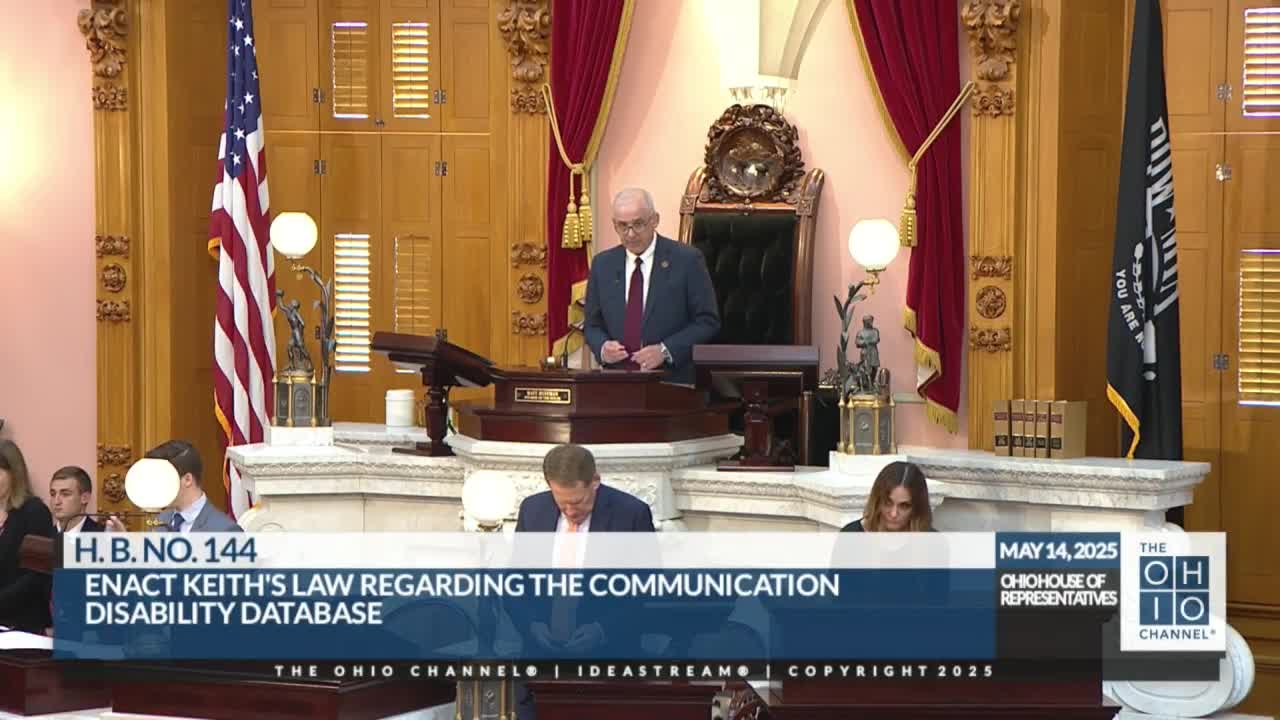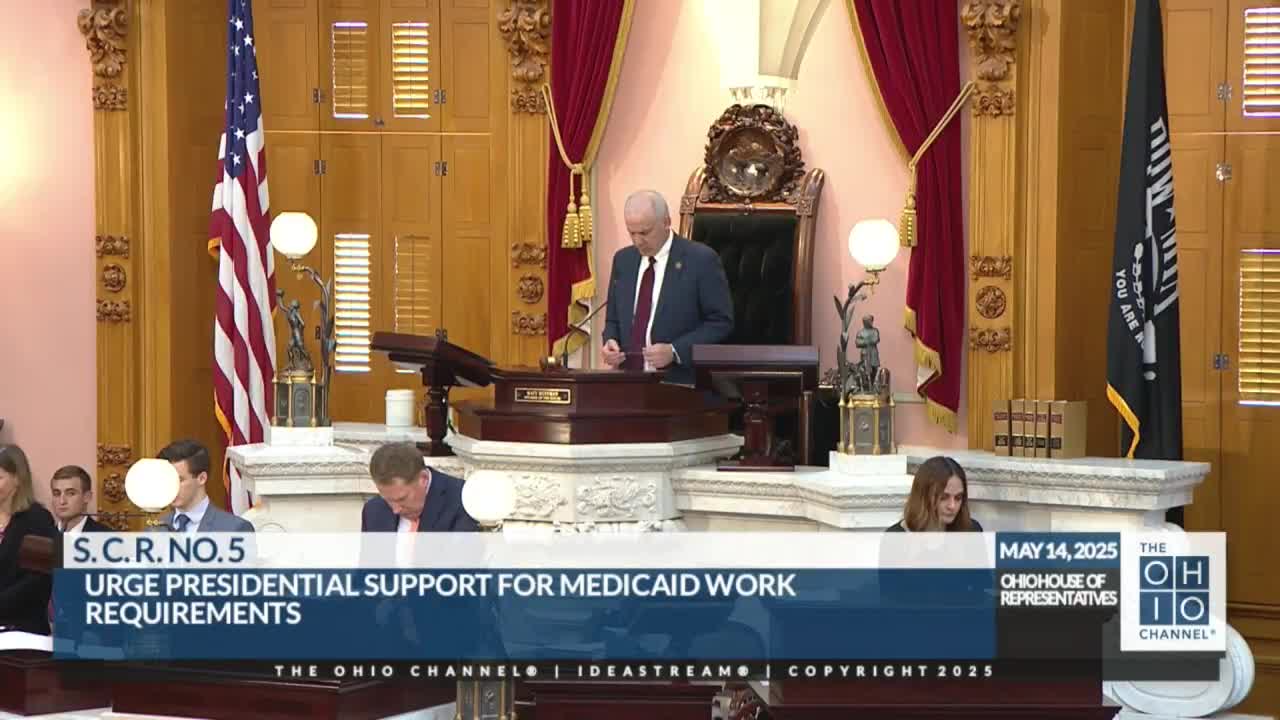Article not found
This article is no longer available. But don't worry—we've gathered other articles that discuss the same topic.

Ohio House passes ‘Keith’s Law’ to create voluntary special‑needs registry for first responders

Ohio House passes bill limiting name‑image‑likeness contracts to collegiate eligibility period

